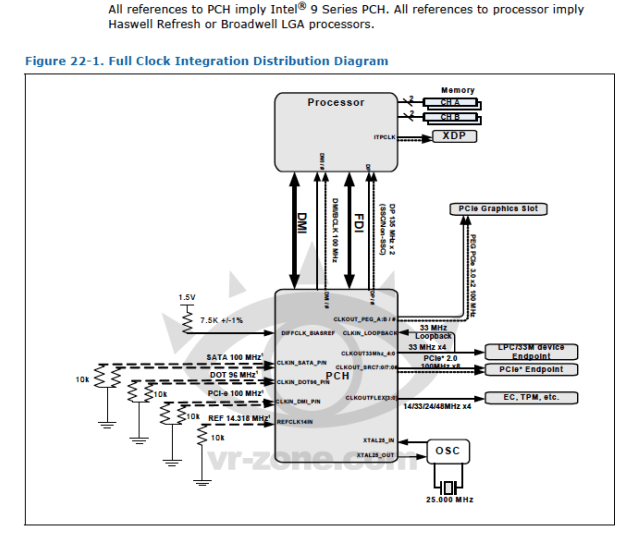Intel's current generation of 'Haswell' processors, as well as the upcoming 'Broadwell' processors, will share the same LGA1150 CPU socket. However, the upcoming 9-series chipsets designed specifically for Broadwell may not be backwards compatible with Haswell, and the current 8-series chips designed for Haswell may not support Broadwell, which could cause a headache for motherboard manufacturers.
According to documentation obtained by VR-Zone, there are slight changes in the implementation requirements of the two processor families. Specifically, Broadwell processors require slightly different connections between the socket and chipset, mostly to facilitate a new power source called VCCST. If motherboard manufacturers implement these changes in their boards with 9-series chipsets, Haswell processors will likely be incompatible.

VR-Zone also speculate that Haswell Refresh processors, expected to be released in a few quarters, will bring minor platform changes that could be compatible with 9-series chipsets. With three different families of processors - Haswell, Broadwell and Haswell Refresh - all using the same CPU socket, but not necessarily supporting the same motherboards and chipsets, OEMs may find it difficult to advertise and explain incompatibilities.
Other information from the report indicates that 9-series chipsets will support SATA Express, the recently finalized specification that brings 2 GB/s of bandwidth. DDR4 memory may also be supported with Broadwell, although conflicting information makes it hard to definitively confirm or deny.
Broadwell is the 14nm die shrink of Intel's Haswell microarchitecture, expected for release sometime in the second half of 2014, alongside new 9-series chipsets.